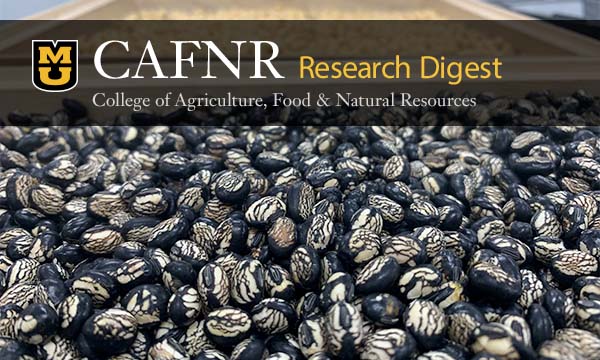|
Dain Jacob Receives the American Heart Association Predoctoral Fellowship
Dain Jacob, doctoral student in Nutrition and Exercise Physiology, has received the prestigious American Heart Associate (AHA) Predoctoral Fellowship. The purpose of this fellowship is to enhance the integrated research and clinical training of promising students who are in a predoctoral or clinical health professional degree training program. Jacob is a doctoral student in the Limberg lab.
CAFNR faculty members have received the following recent grants (listed by Principal Investigator):
Eric Bailey, Use of novel probiotic in feed supplements offered to immature beef calves on pastures, CHR Hansen, 1/10/2022-12/31/2022, $149,212
Deborah Finke, The value of cover crops for belowground insect pest management via the soil microbiome, National Inst of Food and Ag, 1/1/2022-12/31/2023, $120,000
Kiho Lee, TET3-CXXC domain is essential for orchestrating epigenetic status during early embryogenesis in pigs, National Inst of Food and Ag, 12/22/2021-12/31/2024, $650,000
Martha Obando Ortega, Genetic contributions of the female oocyte competence and embryo development in dairy cattle, National Inst of Food and Ag, 1/1/2022-12/31/2023, $300,000
Ronald Revord, Accelerating marker-trait association studies in chestnuts, National Inst of Food and Ag, 12/1/2021-11/30/2025, $563,626
Pavel Somavat, Evaluation of conventionally bred colored corn varaties as a viable source of phytochemicals with diverse agro-industrial applications, National Inst of Food and Ag, 12/21/2021-1/31/2025, $299,959
Jianfeng Zhou, Improve the safety and health for women farmers by adapting farm tools and equipment, University of Minnesota, 11/1/2021-12/31/2024, $249,995
|
